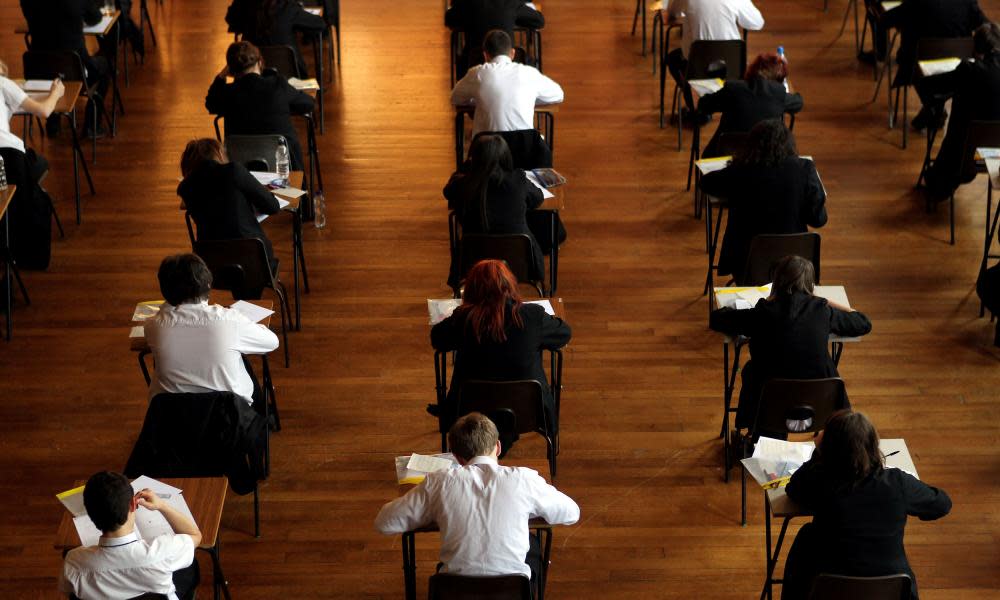State school pupils at a disadvantage from tougher exams

As a teacher with more than 15 years’ experience in the state sector, I read Zoe Williams’s article with interest (Exam season makes everyone unhappy. Why do we put up with it?, 5 June).
No one seems to be aware that not all exam seasons are equal. As I watch our year 11s tumble out from the exam hall each day, giddy with relief that another gruelling, 100% exam GCSE is done and dusted, I wonder if they know that their wealthier, private school peers are sitting “international” GCSEs where, in subjects such as English and history, up to 50% of the mark can come from coursework.
I know because I, like many state school teachers, used to enter our students for these “easier” qualifications. In 2013, state schools had caught on to the private schools’ game and entries for IGCSE English, for example, soared from 18,000 to 78,000. Cutting them from the league tables in 2015, Michael Gove forced state schools to adopt the reformed, more rigorous GCSEs, and unwittingly created a two-tier education system that added disadvantage to already disadvantaged children. Today, private schools continue to reap the benefit, securing swathes of top grades by doing so.
I welcome the rigour of the reformed GCSEs, but if private schools don’t have to do them, then the disadvantage gap will continue to widen. As one of my teenagers would say: “Miss, it’s not fair!” And it really isn’t.
Camilla Cox
London
• Have an opinion on anything you’ve read in the Guardian today? Please email us your letter and it will be considered for publication in our letters section.

 Yahoo News
Yahoo News 
